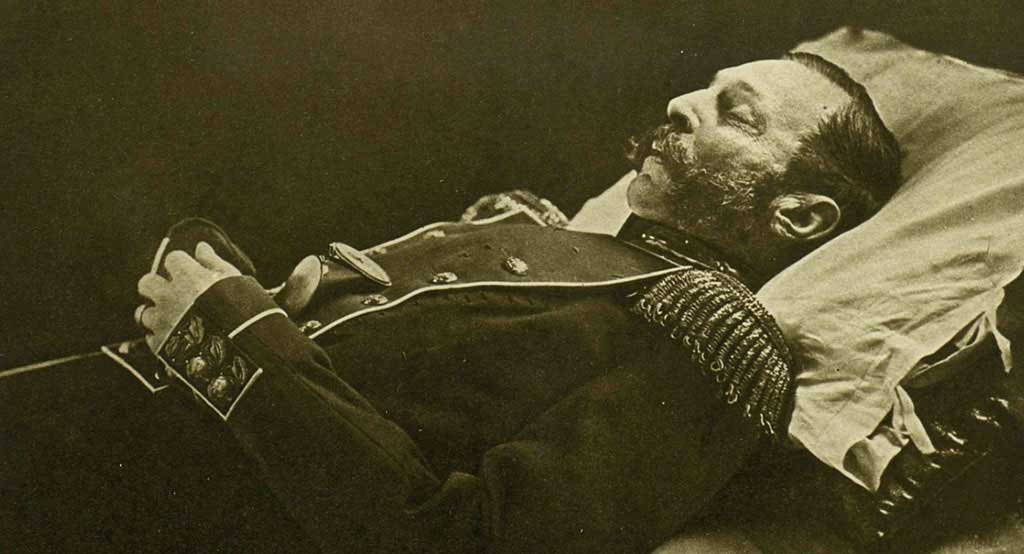1855-1881
The era of liberalism and long-delayed reforms. Alexander II abolished serfdom and introduced reforms that modernized the economy and enabled Russia to enter the industrial age.

“Emperor Alexander II of Russia On His Deathbed” photo by Sergey Levitsky (1881)
Background
Alexander II was the eldest son of Nicholas I. He was well-educated and convinced that Russia needed reforms.
Tsardom
The first thing Alexander II did was to sign the Treaty of Paris (1856), which ended the Crimean War. He also reformed the judicial system, reduced censorship and built a railroad to the Black Sea.
Liberator
Alexander opened a debate about emancipation. The nobility opposed him, but Alexander in a famous speech concluded: “It is better to abolish serfdom from above than to wait for the time when it will begin to abolish itself from below.”
The Emancipation Manifesto (1861), that finally declared all serfs free, about 40 million people in all, was declared.
Also local government institutions, Zemstvos (1864) were introduced, but their effect was not as expected. People grew disappointed and members of radical movements such as the Narodniks schemed to assassinate the emperor.
Assassination
In March 1881, a group of terrorists of the radical movement Narodnaya Volya killed Alexander II with a bomb.
It was not known then that he had been secretly working on the so-called Loris-Melikov constitution project.
Russia Under Alexander II
1855-1881
The era of liberalism and long-delayed reforms. Alexander II abolished serfdom and introduced reforms that modernized the economy and enabled Russia to enter the industrial age.
“Emperor Alexander II of Russia On His Deathbed” photo by Sergey Levitsky (1881)
Background
Alexander II was the eldest son of Nicholas I. He was well-educated and convinced that Russia needed reforms.
Tsardom
The first thing Alexander II did was to sign the Treaty of Paris (1856), which ended the Crimean War. He also reformed the judicial system, reduced censorship and built a railroad to the Black Sea.
Liberator
Alexander opened a debate about emancipation. The nobility opposed him, but Alexander in a famous speech concluded: “It is better to abolish serfdom from above than to wait for the time when it will begin to abolish itself from below.”
The Emancipation Manifesto (1861), that finally declared all serfs free, about 40 million people in all, was declared.
Also local government institutions, Zemstvos (1864) were introduced, but their effect was not as expected. People grew disappointed and members of radical movements such as the Narodniks schemed to assassinate the emperor.
Assassination
In March 1881, a group of terrorists of the radical movement Narodnaya Volya killed Alexander II with a bomb.
It was not known then that he had been secretly working on the so-called Loris-Melikov constitution project.
Alexander II